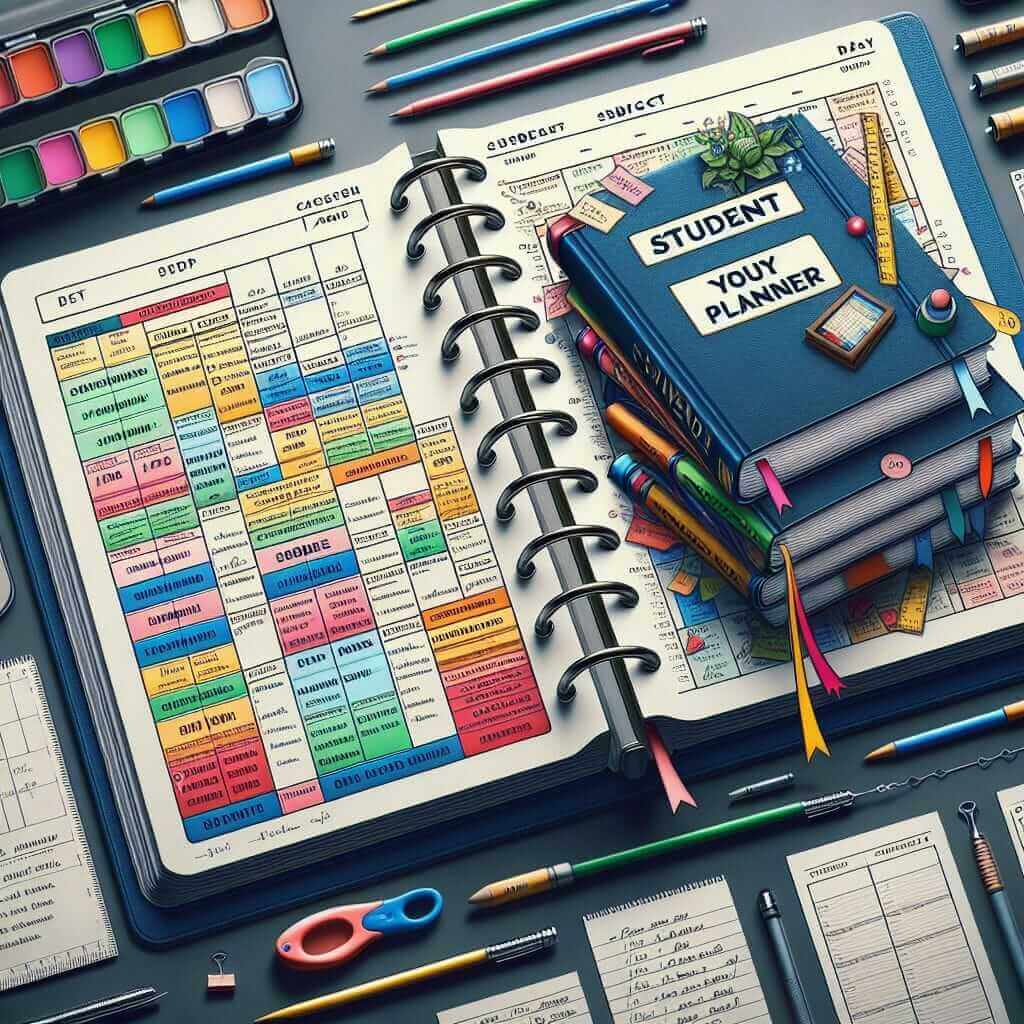In the IELTS Speaking test, one of the most common themes you might encounter is discussing personal experiences related to study habits. A frequent question is “Describe a time when you were very organized in your studies.” Understanding how to effectively respond to this will significantly boost your score. Let’s dive deeper into how you can craft a well-rounded and compelling response.
I. Introduction
The IELTS Speaking test assesses various aspects of your spoken English, including fluency, coherence, lexical resource, grammatical range, and pronunciation. The test comprises three parts:
- Part 1: Introduction and Interview
- Part 2: Long Turn
- Part 3: Two-way Discussion
In today’s guide, we’ll focus on the topic of being organized in your studies. You’ll learn how to effectively answer questions in Part 1, craft a detailed response for Part 2, and engage in a meaningful two-way discussion in Part 3.
II. Content
1. Part 1: Introduction and Interview
Examiner’s Possible Questions:
- “Do you consider yourself an organized person?”
- “Can you tell me about your study routine?”
- “How do you keep track of your assignments and deadlines?”
Sample Response for “Do you consider yourself an organized person?”:
“Yes, I consider myself quite organized. I use a planner to keep track of my daily tasks and set specific goals for my studies. This helps me stay on top of my work and ensures that I manage my time effectively.”
2. Part 2: Long Turn
Cue Card:
Describe a time when you were very organized in your studies. You should say:
- When it was
- What you had to do
- How you organized your time
- And explain how being organized helped you
Sample Response:
“One of the most organized periods in my studies was during my final exams in university last year. I had to prepare for multiple exams across different subjects, all within a span of three weeks. To manage my time effectively, I created a detailed study schedule. First, I listed all the topics I needed to cover for each subject and then allocated specific hours each day to study them. I also made sure to take regular breaks and allocate time for revision in the last week.
By taking such an organized approach, I was able to cover all the necessary material without feeling overwhelmed. This methodical planning not only helped me retain information better, but it also boosted my confidence. As a result, I performed exceptionally well in my exams, achieving one of the highest grades in my class.”
3. Part 3: Two-way Discussion
Examiner’s Possible Questions:
- “Do you think it’s important for students to be organized? Why?”
- “What are some common challenges students face when trying to stay organized?”
- “How can technology assist students in becoming more organized?”
Sample Response for “Do you think it’s important for students to be organized? Why?”:
“Absolutely, being organized is crucial for success in studies. It helps students manage their workload, meet deadlines, and reduce stress. Organized students can balance their academic responsibilities with extracurricular activities, leading to a more well-rounded education.”
Sample Response for “What are some common challenges students face when trying to stay organized?”:
“One of the biggest challenges is procrastination. Many students tend to delay starting their work, which can lead to last-minute cramming and stress. Another challenge is distractions, especially from smartphones and social media, which can significantly disrupt their study schedule.”
Sample Response for “How can technology assist students in becoming more organized?”:
“Technology can be a great asset in helping students stay organized. There are numerous apps for task management, note-taking, and time-tracking that can help students plan their studies more efficiently. For instance, tools like Google Calendar or Trello allow students to create detailed schedules and set reminders for important deadlines.”

4. Important Vocabulary and Structures
Key Vocabulary:
- organized (adj): using a systematic approach to manage tasks.
- Example: “I am very organized when it comes to my studies.”
- schedule (n): a plan for carrying out processes or events.
- Example: “I created a detailed schedule to manage my study time.”
- allocate (v): to distribute resources or duties for a particular purpose.
- Example: “I allocated specific hours each day to study different subjects.”
- retain (v): to keep or hold on to something.
- Example: “This method helped me retain information better.”
- procrastination (n): the action of delaying or postponing tasks.
- Example: “Procrastination is a common issue among students.”
Sample Sentences:
- “By being organized, I was able to cover all the necessary material without feeling overwhelmed.”
- “Creating a detailed study schedule helped me manage my time effectively.”
- “I made sure to allocate specific hours each day to study different topics.”
III. Tips from an Examiner
- Practice Regularly: Consistent practice improves fluency and confidence.
- Stay on Topic: Ensure your answers are relevant to the questions asked.
- Use a Variety of Vocabulary and Grammar: Demonstrate a broad range of language skills.
- Organize Your Thoughts: Take a moment to think before you speak, ensuring your response is coherent.
- Stay Relaxed: Being calm helps you think more clearly and express your ideas better.
By focusing on these techniques and practicing your responses, you’ll be well-prepared to discuss a time when you were very organized in your studies, and confidently handle any related questions in the IELTS Speaking test. Good luck!